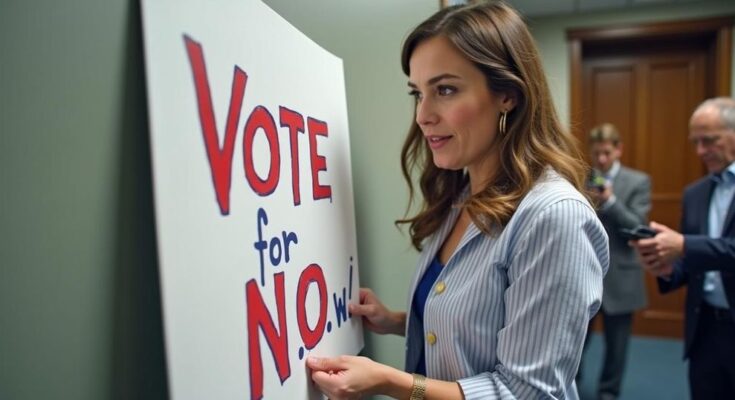The United States Justice Department has filed a lawsuit against Virginia for purging voters from registration rolls too close to the presidential election, claiming the state’s actions violate the National Voter Registration Act’s 90-day quiet period. Governor Youngkin defends the order, framing the lawsuit as a politically motivated attack. Amidst unfounded claims of noncitizen voting, the case highlights ongoing debates regarding voter rights and election integrity ahead of the elections.
In a significant legal move, the United States Justice Department has initiated a lawsuit against Virginia concerning the removal of voters from registration rolls in proximity to the presidential election scheduled for November 5. This lawsuit arises from an executive order enacted by Virginia’s Republican Governor Glenn Youngkin, which mandates the elimination of voters from registration lists if their citizenship cannot be verified through the state’s Department of Motor Vehicles. The Justice Department contends that this order violates the 90-day ‘quiet period’ stipulated by the National Voter Registration Act, which prohibits systematic voter removals within three months before a federal election. Assistant US Attorney General Kristen Clarke emphasized the intention of Congress in enacting this provision, stating that it aims to prevent premature and possibly erroneous efforts that might disenfranchise eligible voters. In defense of the executive order, Governor Youngkin asserted that it was lawful and characterized the lawsuit as an unfounded attack on the integrity of Virginia’s electoral process. He vowed to utilize all available resources to contest the federal action, asserting that the electoral process in Virginia would remain secure and fair, despite allegations of politically motivated interference. The lawsuit comes amidst a growing narrative among Republicans about the alleged risks of noncitizen voting, despite a remarkable lack of evidence to substantiate these claims. Previous investigations, such as a 2017 study by the Brennan Center for Justice, have shown that incidents of noncitizen voting are exceedingly rare, highlighting the importance of a robust and inclusive electoral process.
The legal action taken by the Justice Department against Virginia reflects broader concerns related to voting rights and electoral integrity. Governor Glenn Youngkin’s executive order, aimed at verifying the citizenship of voters, has been criticized for potentially disenfranchising eligible voters, a significant issue in the context of American democracy, where access to voting is paramount. The National Voter Registration Act’s quiet period was designed to shield against last-minute removals that could disproportionately affect eligible voters and undermine democratic participation. Amidst heightened political rhetoric surrounding voter fraud and election security, the lawsuit underscores the complex interplay between state-led initiatives aimed at voter verification and federal protections intended to safeguard voter rights. The perception of widespread noncitizen voting has been notably debunked by various studies, including contributions from non-partisan organizations that analyze electoral processes, thereby framing the current lawsuit within a much larger debate on election integrity and accessibility.
The lawsuit by the United States Justice Department against Virginia illustrates significant tensions over voter registration practices and the integrity of elections. With the backdrop of heightened rhetoric regarding election security and noncitizen voting, the Justice Department’s action aims to enforce compliance with the National Voter Registration Act, ensuring that eligible voters are not unduly removed from registration lists. The conflict between federal oversight and state initiatives will continue to shape the landscape of electoral politics as the nation approaches the presidential elections, highlighting the vital importance of protecting voting rights in a democratic society.
Original Source: www.aljazeera.com




